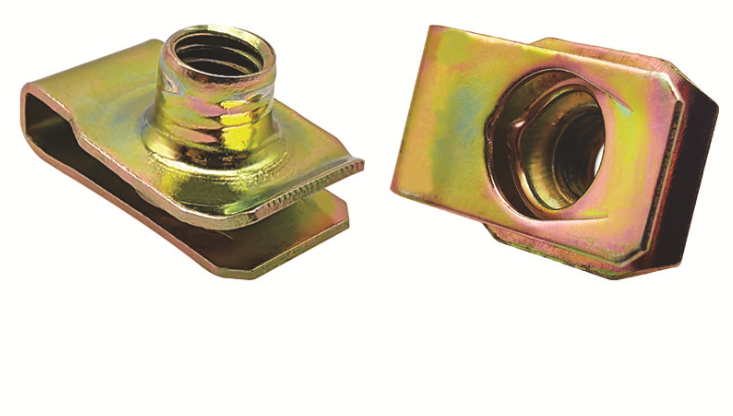Speed Nuts
A leaf spring nut is a component used to connect and fix leaf springs (steel plate springs), and its structure mainly includes a body part and an elastic part. The main body usually includes an upper plate part, a lower plate part, and a connecting plate part. The connecting plate part is used to connect the upper plate part and the lower plate part. The lower plate is equipped with an elastic part that extends obliquely towards the upper plate, while the upper plate is equipped with a threaded part that extends away from the lower plate. The inner surface of the threaded part is provided with threaded holes
Size
| M4-M10 |
Materials
| 65MN |
| S60C |
| SK5 |
| 60Si2Mn |
| 51CrV4 |
Finish
| Zinc Plated |
| the true colours |
| Mechanical galvanizing |
| Phosphating |
Appliction
| Leaf spring nuts are widely used in automotive suspension systems, especially in heavy vehicles and construction machinery. Due to their simple structure, high reliability, and low cost, they have become an indispensable component in suspension systems |
Advantages
| 1. Fixing and Connection: The main function of the leaf spring nut is to fix the steel plate spring in the vehicle suspension system, ensuring the stability and safety of the spring. 2. Increasing Firmness: Through threaded connection and elastic design, the leaf spring nut can effectively solve the problem of inability to clamp and install due to increased plate thickness, while increasing the firmness of plate installation. 3. Adapting to Deformation: The setting of the elastic part allows the leaf spring nut to adapt to the deformation of the steel plate spring, ensuring that it will not loosen or fall off under force |
| . |
 Pls Scan our customer service whatsapp
Pls Scan our customer service whatsapp
